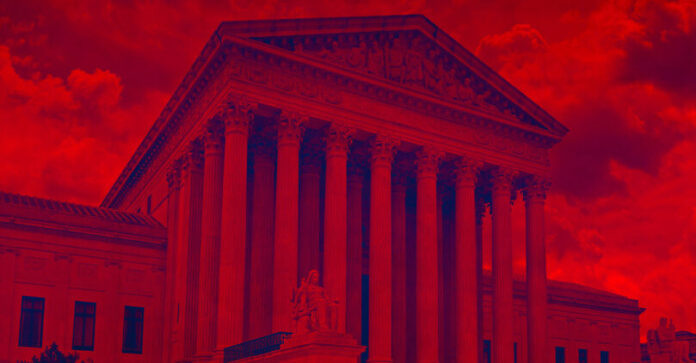
By Lauren Victoria Burke, NNPA Newswire Contributor
After the U.S. Supreme Court did what many have long expected, strike-down race-based admissions to colleges, Black leaders held emergency press conferences and strategy calls. One convened by Marc Morial on June 29 hours after the Supreme Court’s decision yielded sharp commentary.
Affirmative action refers to a set of policies and practices aimed at promoting equal opportunities for historically disadvantaged groups, particularly in relation to employment or education. The purpose of affirmative action is to address the historical and ongoing systemic discrimination and underrepresentation that has been faced throughout history. Women, racial and ethnic minorities, and individuals with disabilities have been beneficiaries. Typically, affirmative action involves taking proactive steps to increase the representation of these underrepresented groups in areas where they have been historically excluded or marginalized.
The 6-3 ruling by the U.S. Supreme Court will alter college admissions policies. Chief Justice John G. Roberts Jr., writing the opinion for the majority, said the programs “unavoidably employ race in a negative manner” and “involve racial stereotyping,” in violation of the Constitution. The ruling affirmed that race-conscious admissions programs at Harvard and the University of North Carolina are unconstitutional.
Associate Justice Sonia Sotomayor spoke in person her dissent from the bench which signaled strong disagreement saying the court’s ruling “further entrenching racial inequality in education” will have a devastating impact.”
The decision would seem to be a slap in the face of history as well as real world reality. Currently, a move is on to ban books in many school districts across America with many Republicans calling rudimentary discussion on race “divisive.” Statistics on college enrollment for African Americans demonstrate there is more work to be done to increase enrollment at a time when college costs have skyrocketed.
“I find it interesting to say we’re beyond race in this country when we know that 48 percent of white students admitted to Harvard between 2009 and 2014 either were legacy admissions or they were athletes,” said Maya Wiley, President of the Leadership Conference on Civil and Human Rights.
“This is the first time that we are facing a court that misinterpreted the equal protection clause and our seminal case Brown vs. Board of Education after a predecessor court made very clear what the principals were in the Constitution and in the Brown case,” said Janai Nelson, President of the NAACP Legal Defense Fund during a mid-day press event held by the National Urban League.
The NAACP Legal Defense Fund has been involved in every case involving affirmative action that has gone to the U.S. Supreme Court.
“Unfortunately, this Supreme Court is trying to have a reality that is more reflective of 1950,” said NAACP President Derrick Johnson.
“Today’s case, let’s be very clear, does not end Affirmative Action but it makes it much more difficult. It narrows the ability of higher education institutions to use their own power to decide who should be in a classroom… we are not abandoning the fight,” Nelson concluded.
“Friends today the Supreme Court got it wrong. I think this day will live in infamy. Because it was one of the most tortured opinions any of us have ever seen because it’s twisted in terms of its logic on the law,” Damon Hewitt, President of the Lawyers Committee for Civil Rights Under Law.
“Nothing in the opinion stops universities from asking about their race,” Hewit pointed out. “Our advice to students is to continue to talk about your experiences with race and racism,” he concluded.
“This Supreme Court ruling will close the door to educational opportunity for many Black students and students of color who want to attend non-HBCUs. With this new ruling, UNCF knows that more students will turn to HBCUs for their college educations. We also know that our HBCUs will do everything they can to meet increased student demand,” stated a press release from the United Negro College Fund.
_____
Lauren Victoria Burke is an independent journalist and the host of the podcast BURKEFILE and publisher of Black Virginia News. She is a political analyst who appears regularly on #RolandMartinUnfiltered. She may be contacted at [email protected] and on twitter at @LVBurke


